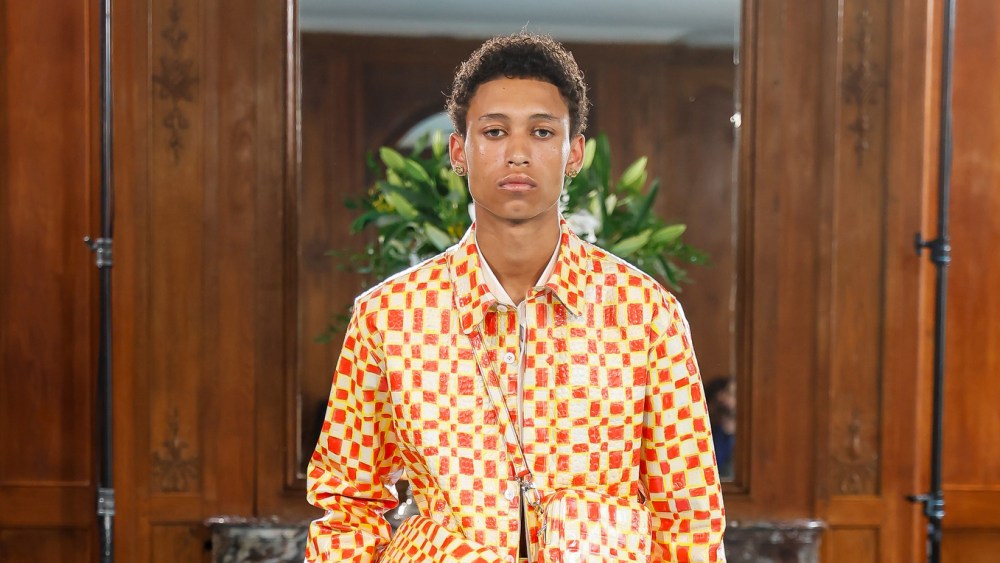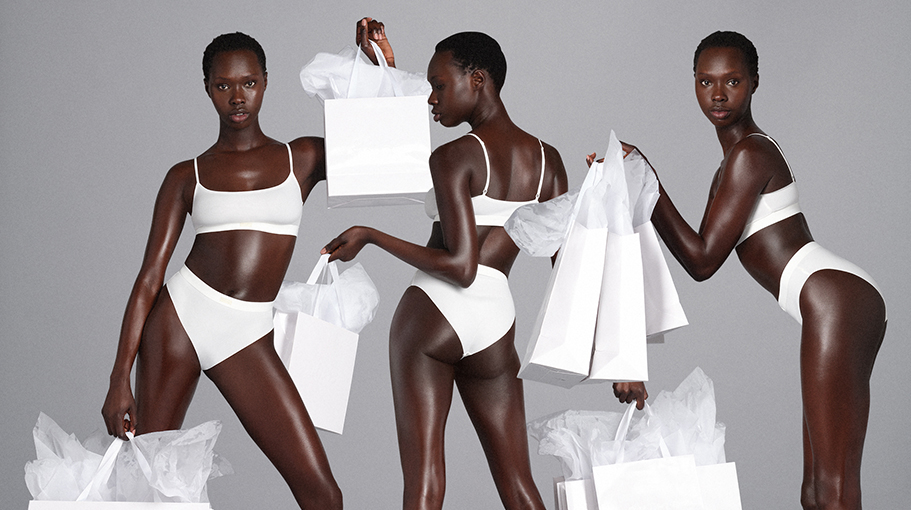Emeric Tchatchoua describes himself as a “third-culture kid.” His parents are from Cameroon, he was born in Paris and spent his teenage years in Canada. “I’m a mix of different cultures and I had to create my own identity. A lot of people now, with a globalized world, feel the same: they don’t feel like they only belong in one country, they feel like their heart belongs in different places, so this is my idea for the collection,” the Andam Prize finalist said backstage before his show, his first on the official Paris calendar and what he described as his “favorite” so far.
Within his multicultural mashup, a few familiar silhouettes provided a backdrop — his dove print pieces and multiwaisted trompe l’oeil jeans were never far away — for pushing experimentation. He worked with new technologies like 3D “lenticular printing” in collaboration with Les Teintures de France at a scale never done before in fashion.
A flip-open Motorola Razr cell phone — inspired by the first device he had when he returned to Europe — was deployed in a repeat print on boxy denim, its screen gleaming like a hologram on the runway. Other fabrics appeared to change color as the models walked, while Lego building blocks — symbolic of building an identity from multiple parts — were printed onto designs, or worked into a crossbody bag.
You May Also Like
Sportswear silhouettes inspired by hip-hop culture were combined with tailored shapes mimicking the “abacost,” a tailored jacket style favored in parts of Africa post-colonization that is short for “à bas le costume,” or “down with the suit” in English, giving his jackets their big rounded collars reminiscent of the ’70s.
Bright checks and handwoven fabrics came from the village of his ancestors, he said, and there were also collaborations with the Paris Saint-Germain football team on a soccer jersey printed with 12 raised hands, all different colors, and with the NBA.


